Charleston Currents #12.30 | June 8, 2020
SUNDAY RALLY. More than 100 people gathered peacefully Sunday morning in White Point Gardens for the eighth day of demonstrations against racism following the May 25 death of George Floyd in Minneapolis. Later Sunday, hundreds of protesters marched peacefully on the Arthur Ravenel Jr. Bridge over the Cooper River. Photo: Kevin Schwartz.
 TODAY’S FOCUS: Primary voting opens 7 a.m. Tuesday
TODAY’S FOCUS: Primary voting opens 7 a.m. Tuesday
COMMENTARY, Brack: Don’t be timid about reform; Ask for more
IN THE SPOTLIGHT: South Carolina Ports Authority
PALMETTO POEM: Praise, by Angelo Geter
NEWS BRIEFS: Lawmakers urged to address hate crimes, gun safety bills
FEEDBACK: Send us your thoughts
MYSTERY PHOTO: Beautiful sunset
CALENDAR: Tickets on sale for new local, social-distanced concert series
S.C. ENCYCLOPEDIA: Charleston riot of 1876
Primary voting opens 7 a.m. Tuesday
Staff reports | Voters who haven’t already cast absentee ballots to avoid the coronavirus and potentially long lines will head to the polls Tuesday for the state Democratic and Republican primaries.
Polls open at 7 a.m. and close 12 hours later. While it’s not clear how busy polls will be, poll managers have received public health training for the pandemic to protect people’s health, according to the state election commission. Social distancing policies will be in place and managers are expected to clean common surfaces. Other new public health measures to be observed at the polls:
- Polling managers will wear masks, face shields and gloves.
- Check-in stations will have sneeze guards.
- Polling places will have hand sanitizer for voters and poll managers.
- Voters will get cotton swabs to make touchscreen selections.
Voters are advised to bring photo identification. Several voting locations also have changed in recent days in Charleston County. Click here to see the list.
“Be patient and understanding with poll managers on election day,” a state election news release said. “They are being asked to do a lot to facilitate voting under the current conditions. We are all in this together.” Read more about the election here.
- To learn more about the candidates, read their answers to six questions posed recently by the Charleston City Paper.
List of City Paper endorsements
 Here is a list of endorsements offered last week by our sister publication, the Charleston City Paper, for you to consider. Read the endorsement editorial here.
Here is a list of endorsements offered last week by our sister publication, the Charleston City Paper, for you to consider. Read the endorsement editorial here.
Democratic primary
- S.C. Senate, District 41: Sam Skardon
- S.C. Senate, District 44: Debbie Chatman Bryant
- S.C. House, District 99: Jen Gibson
- S.C. House, District 109: Dion Tedder
- S.C. House, District 111: Wendell Gilliard
- S.C. House, District 112: David Quick
- S.C. House, District 113: Marvin Pendarvis
- S.C. House, District 115: Spencer Wetmore
- S.C. House, District 116: Millicent Middleton
- Charleston County Council, District 3: Rob Wehrman
- Charleston County Council, District 6: Kylon Middleton
- Charleston County Coroner: Frank Broccolo
Republican primary
- U.S. Senate: LIndsey Graham
- U.S. Congress, 1st District: Kathy Landing
- S.C. Senate, District 44: Gayla McSwain
- S.C. House, District 94: Gil Gatch
- S.C. House, District 99: Chris Staubes
- S.C. House, District 110: William Cogswell
- S.C. House, District 112: Ryan Buckhannon
- S.C. House, District 115: Kathleen Wilson
- S.C. House, District 117: Bill Crosby
 As more people stay home to deal with the coronavirus crisis, people are looking for things to do. You can find some fun things to do online in our calendar section below, but let us also encourage you to FORWARD your issue of Charleston Currents to your friends and encourage them to subscribe. It’s got a great price, as you know: Free! We hope they’ll enjoy our coverage.
As more people stay home to deal with the coronavirus crisis, people are looking for things to do. You can find some fun things to do online in our calendar section below, but let us also encourage you to FORWARD your issue of Charleston Currents to your friends and encourage them to subscribe. It’s got a great price, as you know: Free! We hope they’ll enjoy our coverage.
Now also would be a great time to contribute as we deal with the crisis. In advance, thank you.
BRACK: Don’t be timid about reform; Ask for more
By Andy Brack, editor and publisher | Now is not the time for the state’s black legislators to be timid. Now is the time to demand much more than has been on the table in a long time.
 For the generations from slavery through Jim Crow and into modern times, South Carolina’s African American population has been beaten down, physically, mentally and emotionally. Too many black South Carolinians are born into poverty and never get out of it, mostly because of a culture of white privilege plus governance stemming from a constitution written in 1895. Too many black men are warehoused in prison for doing things that white offenders get a pass on. Too many black children grow up in a state that only pushes for a “minimally adequate education.”
For the generations from slavery through Jim Crow and into modern times, South Carolina’s African American population has been beaten down, physically, mentally and emotionally. Too many black South Carolinians are born into poverty and never get out of it, mostly because of a culture of white privilege plus governance stemming from a constitution written in 1895. Too many black men are warehoused in prison for doing things that white offenders get a pass on. Too many black children grow up in a state that only pushes for a “minimally adequate education.”
So after a week of state and national protests and riots seeking major transformations, the S.C. Legislative Black Caucus rightfully calls for change in a system that resists it. Members want passage of a long-proposed bill against hate crimes to hold accountable those who assault, intimidate, degrade and threaten others because of race, religion, color, sex or more. They want full funding and implementation of a state requirement for police to have and wear body cameras to promote accountability. And they want major police reform, such as better training, psychological testing and certification for police candidates, to protect citizen rights.
“We must stop racial profiling,” said Caucus Chair Jerry Govan, D-Orangeburg. “We must review use-of-force standards. We must hold bad police officers accountable and ensure that a police officer fired for misconduct cannot simply become a police officer in another town down the road. Oversight is critical and community policing … must be adopted in jurisdictions across South Carolina.”
He and caucus members are spot on. But it’s not enough. It’s a pretty standard stuff to ask for what you’ve been asking for in the past.
Now is not the time to be modest. Demand more of the legislature to fix decades of injustice. Now is the time to ask for what you’ve dreamed of. Once and for all, let’s push the General Assembly forward to try to get rid of centuries of degradation, fear, deprivation and wrong:
Repeal the state’s Heritage Act. Stop preventing the removal of Confederate statues and memorials. Local communities, through home rule, should be able to take down homages to the lost cause of the Confederacy more than 150 years after the war ended. New Orleans did it. Birmingham did it. Richmond’s going to do it. Charleston now should remove the looming presence of John C. Calhoun from Marion Square. Put all of these monuments in a park. But let’s get beyond daily reminders of white supremacy.
Fix the Charleston loophole. It’s been five years since nine worshippers were murdered at Emanuel AME Church in Charleston. Stop dilly-dallying around with a common-sense proposal that would make it harder for nuts to get guns.
Fix education. Instead of allowing the status quo of a “minimally adequate education” for South Carolina’s children, insist upon a high-quality education for the 21st century. Failure to educate our children properly will continue problems ingrained in a plantation mentality.
Treat people fairly. Whether in planning where flood protection goes or plants are located, don’t pick on or neglect impoverished areas. Promote equity in public policy.
End predatory lending. Help curb the cycle of poverty by ending predatory lending practices that snare too many people in downward economic cycles from which they can’t escape.
Reform prisons. In a state that finally passed a law getting rid of the shackling of pregnant inmates, South Carolina has made some strides in prison reform, but it needs to do more. Pay guards better to keep prisoners safe. Require psychological evaluations of prison staff. Fund more alternatives for non-violent offenders. Stop relying so much on a system of bail that discriminates.
All South Carolina legislators need to seize this moment. Listen to what protesters are saying about injustice, learn from them and get to work promoting change. Kicking the can down the road, again, is not an acceptable option in any way, shape or form. Do your jobs.
Andy Brack is the editor and publisher of Charleston Currents and Statehouse Report. He is publisher of the Charleston City Paper. Have a comment? Send to: editor@charlestoncurrents.com
South Carolina Ports Authority
 Founded in 1942, the South Carolina Ports Authority (SCPA) owns and operates public marine terminals at two port facilities, the Port of Charleston and the Port of Georgetown, in addition to inland ports in Greer and Dillon, S.C. These facilities are owner-operated terminals, meaning the SCPA owns the terminals, operates all container cranes, manages and operates all container storage yards and leads all customer service functions in both the yard and the lanes.
Founded in 1942, the South Carolina Ports Authority (SCPA) owns and operates public marine terminals at two port facilities, the Port of Charleston and the Port of Georgetown, in addition to inland ports in Greer and Dillon, S.C. These facilities are owner-operated terminals, meaning the SCPA owns the terminals, operates all container cranes, manages and operates all container storage yards and leads all customer service functions in both the yard and the lanes.
SCPA promotes, develops and facilitates waterborne commerce to meet the current and future needs of its customers, and for the economic benefit of the citizens and businesses of South Carolina. In fact, SCPA facilities in Charleston, Dillon, Georgetown and Greer drive $63.4 billion in annual statewide economic impact and 1 in every 10 S.C. jobs is attributed to the port.
- For more information, visit www.scspa.com.
- To meet all of our underwriters, click here.
Praise
By Angelo Geter, special to Charleston Currents
Today I will praise.
I will praise the sun
For showering its light
On this darkened vessel.
I will praise its shine.
Praise the way it wraps
My skin in ultraviolet ultimatums
Demanding to be seen.
I will lift my hands in adoration
Of how something so bright
Could be so heavy.
I will praise the ground
That did not make feast of these bones.
Praise the casket
That did not become a shelter for flesh.
Praise the bullets
That called in sick to work.
Praise the trigger
That went on vacation.
Praise the chalk
That did not outline a body today.
Praise the body
For still being a body
And not a headstone.
Praise the body,
For being a body and not a police report
Praise the body
For being a body and not a memory
No one wants to forget.
Praise the memories.
Praise the laughs and smiles
You thought had been evicted from your jawline
Praise the eyes
For seeing and still believing.
For being blinded from faith
But never losing their vision
Praise the visions.
Praise the prophets
Who don’t profit off of those visions.
Praise the heart
For housing this living room of emotions
Praise the trophy that is my name
Praise the gift that is my name.
Praise the name that is my name
Which no one can plagiarize or gentrify
Praise the praise.
How the throat sounds like a choir.
The harmony in your tongue lifts
Into a song of adoration.
Praise yourself
For being able to praise.
For waking up,
When you had every reason not to.
Angelo Geter serves as the poet laureate of Rock Hill. He is a national poetry slam champion, finalist at several regional competitions and serves on the board of directors for the Watering Hole poetry organization. Most recently, he was awarded a 2020 Poet Laureate Fellowship from the Academy of American Poets. Thanks to state Poet Laureate Marjory Wentworth for curating this section of Charleston Currents.
Lawmakers urged to address hate crimes, gun safety bills
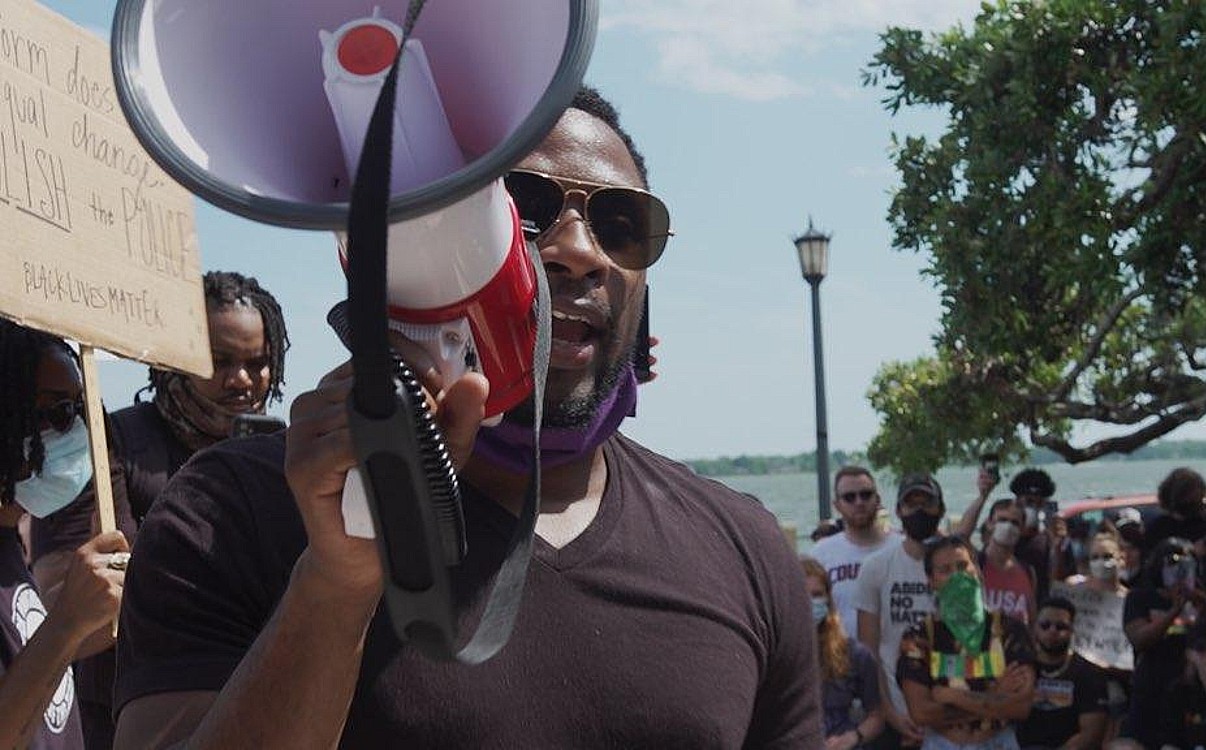
S.C. Rep. Marvin Pendarvis, D-North Charleston, speaks at a recent protest rally. Photo by Gavin Shelton.
Staff reports | Two state lawmakers said last week that it’s time to move forward promptly with bills to make hate crimes illegal and promote gun safety in South Carolina.
S.C. Rep. Wendell Gilliard, D-Charleston, told sister publication Statehouse Report that a hate crimes bill would go a long way toward race relations in the state. Earlier this year, the bill got important bipartisan support from then-House Judiciary Chair Peter McCoy, “but of course, then COVID-19 hit,” Gilliard said, and that all but ended the session and any pending bill with it more than two months early. McCoy has since resigned from the General Assembly to become the state’s U.S. attorney.
Gun safety was also pushed in the years after the church massacre, particularly what’s known as the Charleston loophole, which would require gun dealers to wait until a background is completed before selling a weapon. Most bills died in committee.
S.C. Rep. Gary Clary, R-Gaffney, said it’s time for the loophole to be addressed by Congress since it is too mired in partisan politics in the state. A federal bill passed the Democratic-led U.S. House of Representatives in 2019, but stalled in the Republican-led Senate. Arm-in-Arm, a Charleston group founded to push for gun safety changes following the church shooting, is working to overcome the political divide. Founder Meghan Alexander has said new legislation will be pushed in 2021 and the group will continue to hear from gun owners in the coming months.
Also in the news:
![]() Online help for the needy. The Lowcountry Food Bank, in partnership with the College of Charleston’s Riley Center for Livable Communities and the city of Charleston, has announced a new online, interactive Charleston Free Food Finder Map. The map helps people in need find free food in Charleston County. People trying to find nearby food pantries can go to https://bit.ly/chs-food-resources and type in their location.
Online help for the needy. The Lowcountry Food Bank, in partnership with the College of Charleston’s Riley Center for Livable Communities and the city of Charleston, has announced a new online, interactive Charleston Free Food Finder Map. The map helps people in need find free food in Charleston County. People trying to find nearby food pantries can go to https://bit.ly/chs-food-resources and type in their location.
A dozen cultural organizations get relief grants. Twelve greater Charleston cultural organizations recently received emergency relief grants through S.C. Humanities including Charleston Friends of the Library, The Charleston Museum, Drayton Hall Preservation Trust, Edisto Island Historic Preservation Society, Gibbes Museum of Art, Historic Charleston Foundation, McClellanville Arts Council, Middleton Place Foundation, Patriots Point Naval and Maritime Museum, Preservation Society of Charleston, South Carolina Historical Society and the Timrod Literary and Library Association in Summerville. Across the state, 99 organizations received more than $482,000 in funding from the National Endowment for the Humanities through federal coronavirus relief funds.
S.C. sees surge in coronavirus cases. Gov. Henry McMaster has urged “common sense,” not shutdown, as the state is seeing its highest jumps in new cases with 390 on Sunday, 512 on Saturday, 447 on Friday and 361 on Thursday. To date, the state has 14,286 reported cases of the virus. As of Sunday night, 546 COVID-19 patients have died in the Palmetto State. Meanwhile, state health officials warned the public to “hunker down” and to continue to wear masks when out. Read more. Greenville apparently is the state’s new hotspot.
S.C. 9th most dependent on the federal government. South Carolina joins six of its Southern neighbors in the top 10 states most dependent on the federal government, according to an analysis by financial firm SmartAsset. South Carolina, ranked ninth, is joined by West Virginia, Alabama, Mississippi, Louisiana, Kentucky and Tennessee. South Carolina also has the 11th-highest ratio of earnings for federal workers to private workers; the 16th-highest ratio for federal funding to income taxes paid; and the 18th-highest rate for federal share of state government revenue, at 35.19 percent. Read more.
Higher gas tax coming July 1. A 2-cent increase in gas taxes will be in effect July 1. The increase is part of the phased increase to the state’s gas tax that was passed in 2017. Read more.
S.C. congressmen push for rural broadband funding. All nine members of South Carolina’s congressional delegation, from both parties, signed a letter requesting investment in rural broadband expansion. Read more.
- Have a comment? Send to: editor@charlestoncurrents.com
Got something to say? Let us know by mail or email
We’d love to get your impact in one or more ways:
Send us a letter: We love hearing from readers. Comments are limited to 250 words or less. Please include your name and contact information. Send your letters to: editor@charlestoncurrents.com. | Read our feedback policy.
Tell us what you love about the Lowcountry. Send a short comment – 100 words to 150 words – that describes something you really enjoy about the Lowcountry. It can be big or small. It can be a place, a thing or something you see. It might be the bakery where you get a morning croissant or a business or government entity doing a good job. We’ll highlight your entry in a coming issue of Charleston Currents. We look forward to hearing from you.
Beautiful sunset
Look at how the setting sun casts a pink glow above trees on this stretch of highway on a recent evening. Beautiful. But where is this general location? Send your best guess to editor@charlestoncurrents.com. And don’t forget to include your name and the town in which you live.
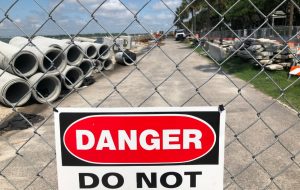 Our most recent mystery, “Pipes and stuff,” showed some of the material being used in construction to make the Low Battery taller. This photo was taken along Murray Boulevard near the U.S. Coast Guard station.
Our most recent mystery, “Pipes and stuff,” showed some of the material being used in construction to make the Low Battery taller. This photo was taken along Murray Boulevard near the U.S. Coast Guard station.
Congratulations to this week’s successful photo detectives: Kolby Klinger, Stephen Yetman and Delia Smith of Charleston; Chris Brooks of Mount Pleasant; Katharine D. Beard of Camden; George Graf of Palmyra, Va.; and Jay Altman of Columbia.
- Send us a mystery: If you have a photo that you believe will stump readers, send it along (but make sure to tell us what it is because it may stump us too!) Send it along to editor@charlestoncurrents.com.
Tickets on sale for new local, social-distanced concert series
Staff reports | You now can get tickets to a new social-distanced concert series, Safe Sounds at Firefly, that starts June 12. It will feature local musicians during 13 shows over seven weeks on Fridays and Saturdays.
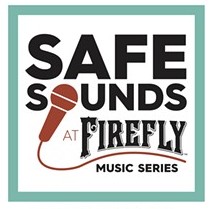 The shows will include live music, Firefly cocktails and local food trucks. Here’s the line up:
The shows will include live music, Firefly cocktails and local food trucks. Here’s the line up:
- June 12 & June 13 – Runaway Gin
- June 19 & June 20 – Whiskey Run and Lauren Hall
- June 26 & June 27 – The Majestics
- July 3 – The Midnight City Band. (No Safe Sounds concert on July 4.)
- July 10 & July 11 – The Yacht Club
- July 17 & July 18 – The Reckoning
- July 24 & July 25 – TBA with special guest
Since these are still unprecedented coronavirus times, the presenters have come up with ways to keep the community safe. For example, tickets for the event are limited to 500 and no more than four tickets can be purchased at a time. Each set of four tickets will secure a spot in a 10-by-10 square, separated on all sides by 8 feet. Guests are encouraged to bring blankets and chairs to enjoy the concert. You are not allowed to bring dogs, children, and outside food and drink.
“We’re lucky to have plenty of space, so even by limiting the concerts to 10 percent of our field capacity, we can still host 500 guests,” Scott Newitt, co-owner of Firefly said in a press release.
Also in effect to bolster safety:
- All staff and vendors will be required to wear masks
- Hand sanitizer will be available throughout the distillery
- Extra bathrooms will be available with a sanitation attendant
- Extra security will enforce social distancing guidelines
Tickets are available now to anyone 21 and over at citypapertickets.com. Shows will begin at 7 p.m., with doors at 6 p.m.
Also on the calendar:
![]() Aquarium to open new experience on July 4. “Monsters” is a new experience offered starting July 4 at the S.C. Aquarium. “From micro to mega, explore the Aquarium in a whole new way,” according to promotional material. You can also participate online in the attraction’s daily Nature Challenge, a virtual “Passport to Fun” and a “Moment of Zen” that has started. The aquarium also offers daily education classes at 10 a.m. and 2 p.m., Monday to Friday, via its virtual network. Learn more.
Aquarium to open new experience on July 4. “Monsters” is a new experience offered starting July 4 at the S.C. Aquarium. “From micro to mega, explore the Aquarium in a whole new way,” according to promotional material. You can also participate online in the attraction’s daily Nature Challenge, a virtual “Passport to Fun” and a “Moment of Zen” that has started. The aquarium also offers daily education classes at 10 a.m. and 2 p.m., Monday to Friday, via its virtual network. Learn more.
Online offerings. Spoleto at Home offers virtual programming through June 5 that you can enjoy from the comfort and safety of your own living room! Tune in for original concerts, best-of Chamber Music hits, and insightful conversations with Festival artists. All programs are free to experience; no tickets required. Click here to find more fun stuff to do.
- Gibbes Museum. You can enjoy lots of local art offerings through the website and social media accounts of the Gibbes Museum. At 10 a.m. on weekdays, the museum posts virtual readings and workshops on Facebook. Find more online.
- Avian Conservation Center. Access videos and live streaming presentations online to learn about what’s going on at the Center for Birds of Prey.
- More. You can visit 500 museums across the world online through this Google amalgamation of sites.
If you have any online events, drop us a line (editor@charlestoncurrents.com) and make sure to put “Online event” in the subject line. Similarly, if you’ve got cool ideas for stuff to do while in isolation at home, send them our way.
Charleston riot of 1876
As the crucial local, state, and national elections of 1876 approached, tensions between the races in South Carolina reached a boiling point. White Democrats sought to reclaim political power lost as a result of the Civil War and Reconstruction. Using violence, intimidation, economic blackmail, and fraud, Democrats attempted to cow blacks into submission to the old order. Five riots occurred in two counties of the state, Aiken and Charleston. In Aiken County the riots were usually white-on-black violence. In Charleston County they tended to be the other way around. Charleston County black Republicans were particularly incensed by Democratic attempts to induce black voters to leave the Republican Party and vote Democratic in 1876. In Charleston, angry black Republicans resented the men from their race who changed sides, frequently threatening them with physical violence and often carrying out their threats. Democrats sought to protect their black recruits, thereby setting up confrontations with black Republican activists.
Matters came to a head in September 1876. On September 1, Democrats held a ward meeting, at which several blacks made fiery speeches denouncing the Republican Party. After the meeting, one of the speakers, a black porter named Isaac Rivers, was attacked. On September 6, fresh from their own ward meetings, black Republicans gathered at Archer’s Hall to hear speeches made by their Democratic opponents. J. R. Jenkins, a black Democrat, angered the Republicans with a verbal assault that impugned the intelligence of black women who encouraged black men to vote the Republican ticket. A group of black Republicans pursued the white and black Democrats to the Citadel green, where one white man, fearing attack, fired a pistol in the air to frighten the Republicans. Instead, the action drew hundreds of additional black men to the spot, and a riot ensued with the Democrats retreating and asking for protection from federal troops stationed at the Citadel.
As the night progressed, more and more black men roamed the city, their anger increasing. A full-scale riot ensued with blacks beating any white men they encountered. “For the next few days, Charleston was in turmoil as blacks continued to attack whites randomly, making it unsafe for whites to venture out on the streets, particularly at night.” White opposition to the violence was modest and ineffective. Federal troops did not intervene. One black and one white died in the riot, while six policemen, a handful of blacks, and at least fifty whites were injured.
The activism and aggression against whites displayed by Charleston blacks set that city apart from others in the South during Reconstruction. While southern ports such as New Orleans and Mobile likewise experienced Reconstruction era riots, blacks tended to be the victims rather than the aggressors. Charleston’s black community drew on its majority status in the city, as well as a tradition of militancy and violence that dated back to the Stono Rebellion and the Vesey conspiracy, to aggressively protect their newly found freedoms, including the right to vote and to hold political office. They had the numbers, as well as the political and racial consciousness, to do so until the end of Reconstruction in 1877.
— Excerpted from an entry by Glennon Graham. This entry may not have been updated since 2006. To read more about this or 2,000 other entries about South Carolina, check out The South Carolina Encyclopedia, published in 2006 by USC Press. (Information used by permission.)
If you like what you’ve been reading, how about considering a contribution so that we can continue to provide you with good news about Charleston and the Lowcountry. Interested? Just click the image below.
OUR UNDERWRITERS
Charleston Currents is an underwriter-supported weekly online journal of good news about the Charleston area and Lowcountry of South Carolina.
- Meet our underwriters
- To learn more about how your organization or business can benefit, click here to contact us. Or give us a holler on the phone at: 843.670.3996.
OUR TEAM
Charleston Currents offers insightful community comment and good news on events each week. It cuts through the information clutter to offer the best of what’s happening locally.
- Mailing address: 1316 Rutledge Avenue | Charleston, SC 29403
- Phone: 843.670.3996
Charleston Currents is provided to you weekly by:
- Editor and publisher: Andy Brack, 843.670.3996
- Contributing editor, common good, Fred Palm
- Contributing editor, money: Kyra Morris
- Contributing editor, Palmetto Poem: Marjory Wentworth
- Contributing editor, real estate: Digit Matheny
- Contributing photographer: Rob Byko
- Charleston Currents also uses content from the outstanding staff at the Charleston City Paper, a sister publication.
SUBSCRIBE FOR FREE
Subscriptions to Charleston Currents are free.
- Click here to subscribe.
- Unsubscribe. We don’t want to lose you as a reader of Charleston Currents, but if you must unsubscribe, you will have to do it through the email edition you receive. Just go to the bottom of any of your weekly newsletters and click the “unsubscribe” function. If that doesn’t work, please send us an email with the word “unsubscribe” in the subject line.
- © 2008-2020, City Paper Publishing, LLC. All rights reserved. Charleston Currents is published every Monday by City Paper Publishing LLC, 1316 Rutledge Ave., Charleston, SC 29403.


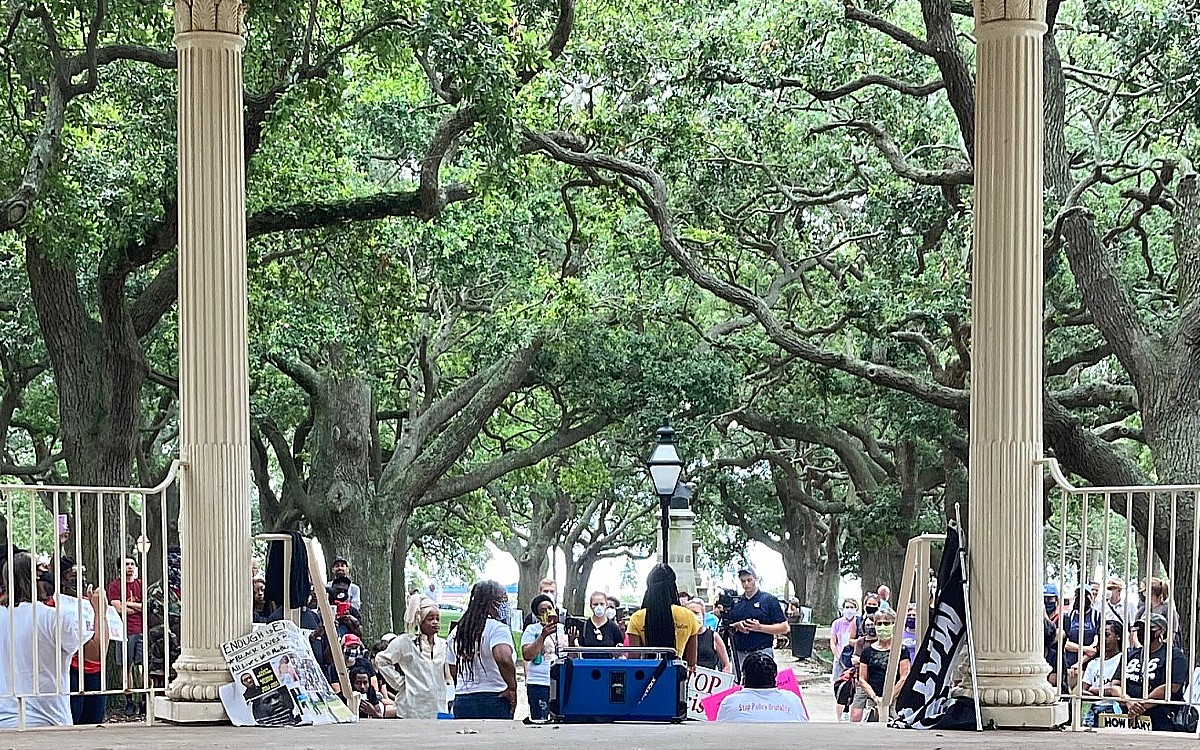
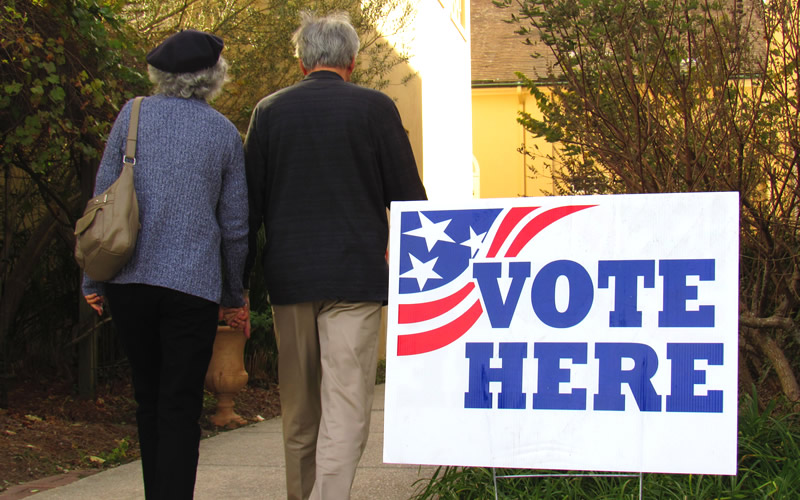
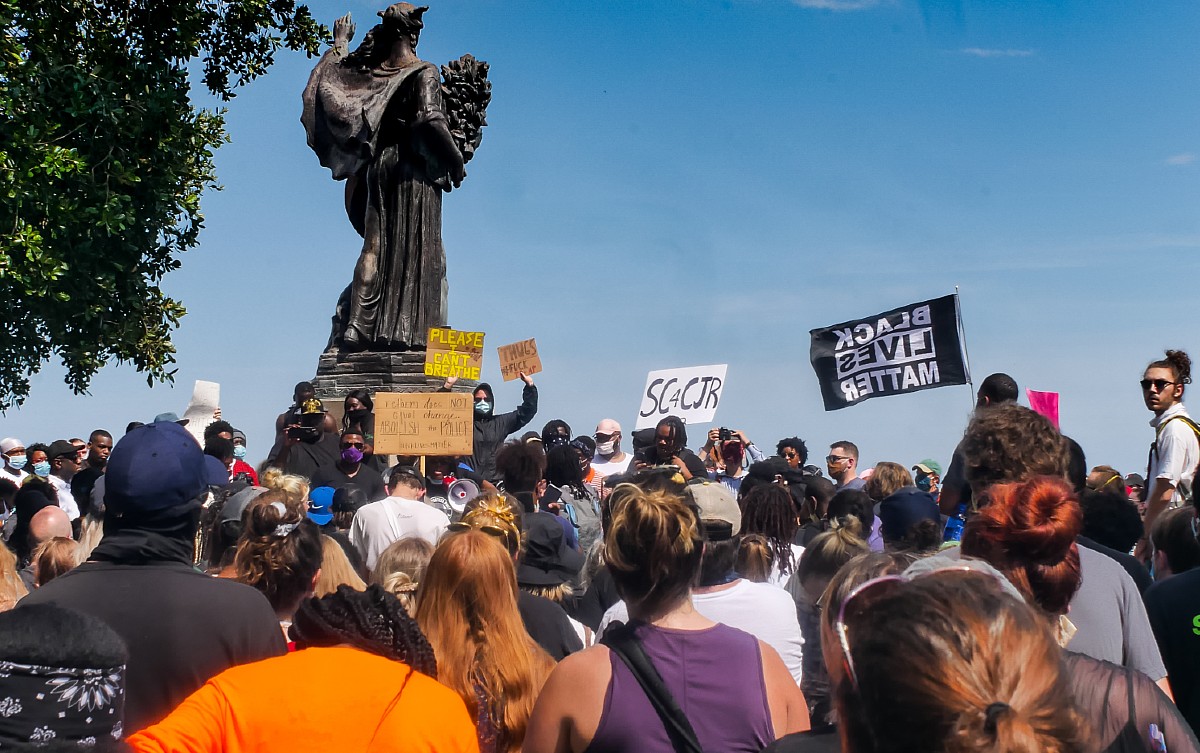

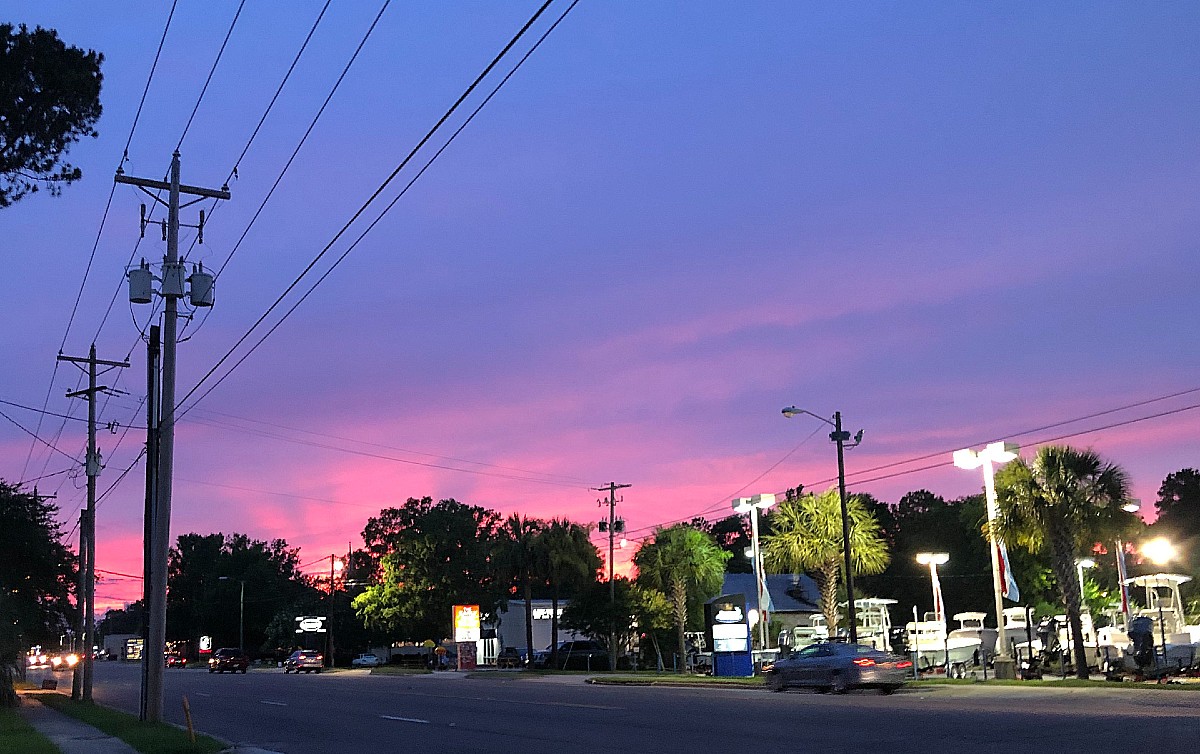
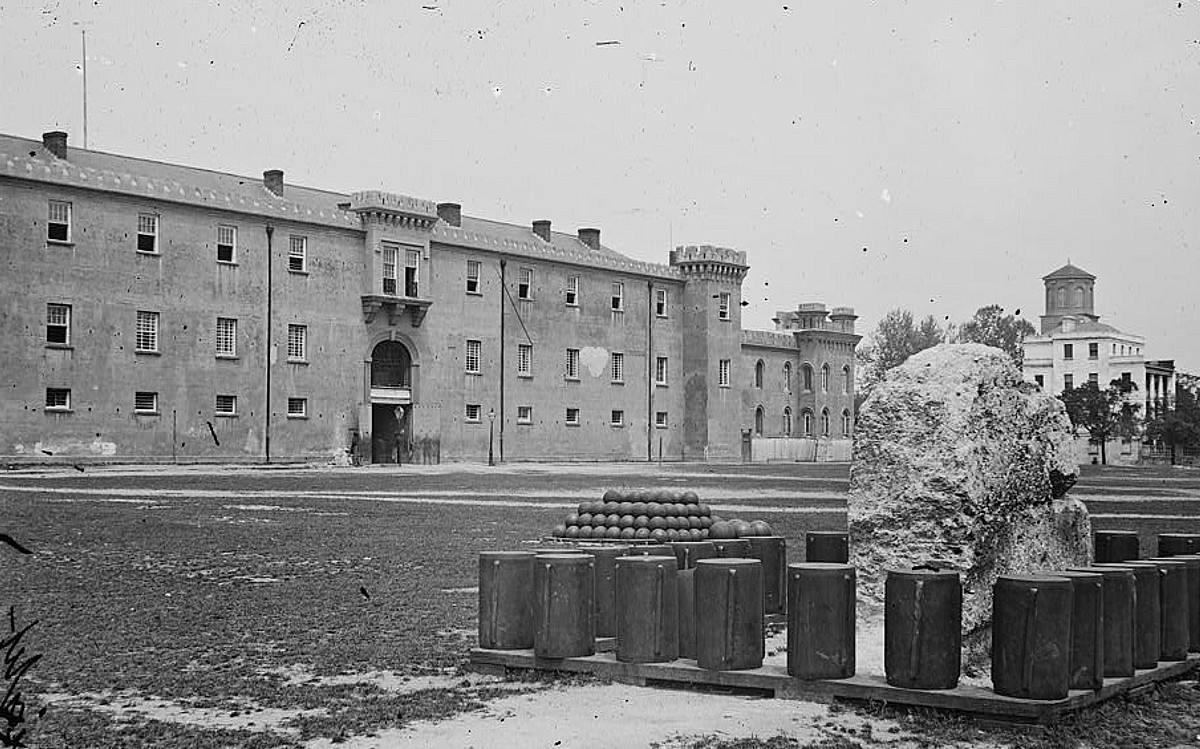

 We Can Do Better, South Carolina!
We Can Do Better, South Carolina!
























